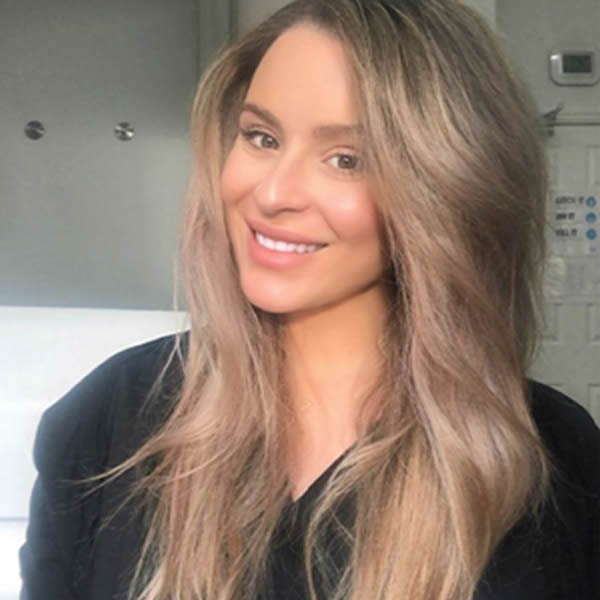Vulvitis
What is vulvitis?
Vulvitis is an inflammation of the vulva (the visible external genitalia). Vulvitis is not a condition or disease; it is a symptom that results from a number of different causes including allergies, infections, injuries, and other external irritants. Other vaginal infections such as vaginitis or genital herpes often accompany vulvitis. Women who experience excessive stress, whose nutrition is poor, or who have poor hygiene may be more susceptible to vulvitis. Pruritus Vulvae is whe n vulvitis is accompanied by vulval itching.
What causes vulvitis and vulval itching?
Several factors may contribute to the development of vulvitis:
- Oral sex.
- Scented or colored toilet tissue.
- Bacterial or fungal infection.
- Hot tubs and swimming pools.
- Horseback riding.
- Sexually transmitted infections
- Leaving a wet swimming suit on for a long period.
- Bicycle riding.
- Allergic reactions to products such as: soaps, shampoos, bubble baths, powders, deodorants, sanitary napkins, non-cotton underwear, pantyhose, vaginal douches, topical medications.
Risk Factors / Associations for Vulvitis?
- Diabetic women face increased risk of developing vulvitis because the high sugar content of their cells increases susceptibility to infections. As oestrogen levels drop during perimenopause, vulvar tissues become thinner, drier, and less elastic increasing a woman’s chance of developing vulvitis, or other infections such as vaginitis. Young girls who have not yet reached puberty are also at possible risk due to the fact that adequate hormone levels have not yet been reached. Any woman who is allergy-prone, has sensitive skin, or who has other infections or diseases can develop vulvitis.
- Other associations or risk factors include immune deficiency states, Urinary incontinence. Faecal incontinence, Any cause of generalised pruritus, e.g. liver disease, lymphoma, Psychological problems.
Symptoms of vulvitis?
While each woman may experience vulvitis symptoms differently, some of the most common symptoms are:
- Redness. Swelling. Fluid-filled, clear blisters that break open, and form a crust (sometimes mistaken for herpes). Irritation. Burning sensation.
- Scaly appearance. Thickened or whitish patches. Possible vaginal discharge.
It’s important for women with these symptoms to remember not to scratch as this can lead to further irritation and/or infection. Although it may seem like a good idea to wash repeatedly over the day, the fact is that over washing the affected area can lead to further irritation. It’s best to wash just once a day with warm water only when symptoms of vulvitis are present.
How is vulvitis diagnosed?
Several diagnostic tools such as blood tests, urinalysis, testing for sexually transmitted diseases (STDs), and Pap smears help your doctor diagnose vulvitis. A personal or family history of skin
disease (e.g. atopy, psoriasis, eczema) or autoimmune disease (associated with lichen sclerosus) may be significant.
Investigations to aid diagnosis may include the following:
- Blood tests – which may include fasting glucose, FBC, serum ferritin and TFTs..
- If an infection is suspected, appropriate swabs or cultures should be taken to look for conditions such as candida or bacterial vaginosis.
- If a sexually transmitted disease is suspected, appropriate swabs and/or blood tests should be arranged.
- Skin biopsy may be required in cases of diagnostic difficulty (as a rule of thumb, any skin lesion not responding to a six-week course of treatment).
What is the treatment for vulvitis?
The treatment for vulvitis varies according to cause. Your clinician will consider several factors before determining which treatment is the right one. Some factors your clinician will consider include:
- Your age, general health, and medical history.
- The cause of your symptoms.
- The specific symptoms you are experiencing.
- The severity of your symptoms.
- How well you tolerate certain medications, procedures, or therapies.
Once these factors are considered, several methods of treatment are available including both self-help measures, and prescribed medications. Low-dose hydrocortisone creams may be prescribed
for short periods. Anti-fungal creams are sometimes helpful for treatment of vulvitis. Post menopausal women may find topical oestrogen relieves their symptoms. Self-help treatments include:
- Baths containing soothing compounds such as Aveeno baths or comfrey tea baths.
- Stopping the use of any products that may be a contributing factor.
- The vulva should be kept clean, dry, and cool. Do remember to wipe from front to back.
- Hot boric acid compresses.
- Cold compresses filled with plain yogurt or cottage cheese help ease itching and irritation.
- Calamine lotion.
- Using sterile, non-irritating personal lubricants such as K-Y Jelly, or Sylk during sexual activity.
- Learning to reduce stress.
- Eating an adequate and nutritious diet.
- Making sure you get enough sleep at night.
Pruritus vulvae of unknown cause
In the absence of a specific diagnosis, or whilst waiting for results, the following treatments can be tried. Most are based on the empirical experience of experts, as there is little published evidence:
- Emollients can be used as an adjunct to other treatments and are suitable for easing itching in almost all types of vulval disease; they can be used in addition to most other therapies. They can also be used as a soap substitute or moisturiser. There is wide patient variability and lack of comparative evidence, so the choice of preparation can be left to individual preference. If topical steroids are used as well, the emollient should be used first and the steroid 10-20 minutes later. This ensures the skin is moisturised and avoids spread of the steroid to normal skin.
- Sedating oral antihistamines appear to work by promoting sedation rather than blocking the action of histamine. Sedative antidepressants have been used with similar benefit
- Low-potency topical corticosteroids, e.g. hydrocortisone 1% ointment, can be considered as a short trial (1-2 weeks). Potent steroids should be avoided as they can affect surface features and confuse the diagnosis should subsequent specialist referral be required. Specialist referral is indicated if there is no response to steroids.
Specific management (known cause)
This will depend on the underlying condition and the results of investigations. Potent steroids should only be used if the prescriber is confident in the diagnosis. This is usually after confirmation by a specialist, often on the basis of biopsy results.
Infection – Vulval and vaginal infections should be treated with the appropriate antibiotic, antifungal,
antiviral or other antimicrobial agent. Consider investigating and treating the partners of women with recurrent Group A beta-haemolytic streptococcal (GAS) infection. Such men have been found to have a high incidence of GAS in the bowel which is passed on via contamination of bedding. Treating both partners sometimes results in resolution of the condition.
Dermatological conditions
- Contact dermatitis – this is mainly centred on irritant avoidance, with topical corticosteroid treatment as a secondary measure to relieve itching.
- Seborrhoeic dermatitis and psoriasis – these are usually treated with judicious use of topical corticosteroids (sometimes combined with an antibacterial or anticandidal agent). Ketoconazole shampoo can be used as body wash for seborrhoeic dermatitis.
- Lichen simplex can be treated with topical betamethasone for 1-2 weeks to break the itch-scratch cycle.
- Lichen sclerosus and lichen planus may respond to short-term regular potent or superpotent topical corticosteroids followed by maintenance application. Women with lichen sclerosus have a small risk (2-5%) of developing carcinoma, so long-term follow-up is recommended. Regular use of a simple moisturiser may lessen attacks and reduce the requirement for steroids.
- Zoon’s vulvitis – This normally responds to high-potency topical steroids.
Other Vulval Conditions
- Vulvar vestibular syndrome – this is also known as vestibulitis, vestibular pain syndrome, vestibulodynia and localised vulval dysaesthesia. Altered pain perception is the major feature of this syndrome. Management is often difficult. A number of treatments have been tried, including Xylocaine® gel, pelvic floor retraining with biofeedback, low-dose tricyclic antidepressants, newer agents for neuropathic pain, and cognitive behavioural therapy. Rarely, vestibulectomy is offered as a last resort.
- Dysaesthetic vulvodynia – this is also known as essential vulvodynia and generalised vulval dysaesthesia. The predominant symptom is chronic, poorly localised vulval burning or pain. The exact aetiology is unclear, but the condition shares some features with neuropathic pain syndromes. Low-dose tricyclic antidepressants are the standard treatment for dysaesthetic vulvodynia. Gabapentin, imipramine and venlafaxine have also been reported to be beneficial.
- Lichen sclerosus – The main symptom of lichen sclerosus is severe itching. Scratching can result in broken skin, burning or stinging, pain during sex and/or urination. Lichen sclerosus is thought to be an autoimmune disorder. It affects women of all ages but is primarily found in post-menopausal women. Lichen sclerosus can be misdiagnosed as thrush however, on inspection, the skin is dry, shiny, finely wrinkled and may have white patches. If left untreated lichen sclerosus can cause severe scarring of the vulva (including the shrinking of the labia and narrowing of the vaginal entrance). It is also associated with a small increased risk of vulval cancer. Treatment involves the use of a topical steroid and is often life-long. Once a woman is diagnosed with lichen sclerosus she should undergo regular reviews, even if asymptomatic, to ensure the condition is under control and no cancerous changes have occurred.
- Lichen planus This skin condition affects a number of areas of the body including the vagina and vulva. As with lichen sclerosus the exact cause is unknown, but an overactive immune system or genetic predisposition may play a role. Symptoms can include small lesions, a red – purplish colour to the skin, soreness and burning associated with raw areas of skin as well as bleeding and/or painful sex. Vaginal discharge may be heavier, sticky and/or yellow. If left untreated lichen planus can cause scarring of the vagina and vulva. Treatment involves topical or oral steroids and pain relief gels, oral pain relief and antidepressants (used for pain relief). Lichen planus may be associated with a small increased risk of vulval cancer
- Psoriasis – Women with psoriasis of the vulva often have the skin condition elsewhere on their body. Psoriasis is an immune system disorder. Symptoms include scaly, red plaques (although on the vulva these are generally less well defined than on other areas of the body). Other signs which may point to psoriasis include nail pitting, scalp scaling and a family history of the condition. Treatment includes the use of topical steroids and a low dose coal tar cream.









Leave a Reply
Want to join the discussion?Feel free to contribute!